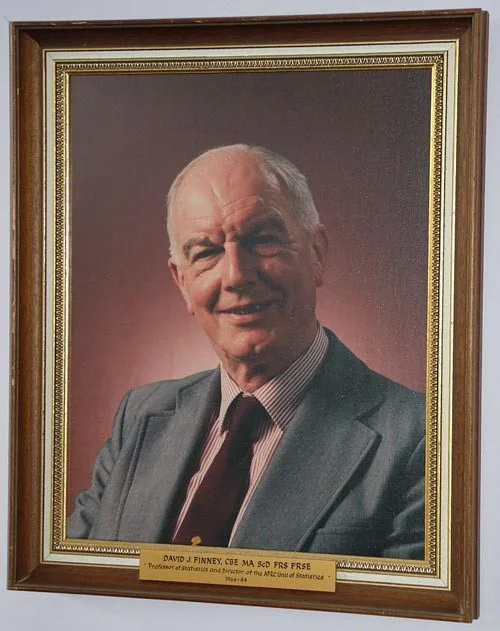Extract from my draft book Lavender Rising: An Intersectional History of the LGBTQI+ Struggle
In Chapter 7, I will discuss the disturbing history of eugenics in Edinburgh, and the Glaswegian headshrinker Donald Ewen Cameron who ran roost at McGill University in Montreal, from whence William Sargant initiated modern eugenicist psychiatry in Britain in the inhuman basement of St. Thomas’s Hospital in London, with the apparent tacit compliance of the ‘scientifically respectable’ Lionel Penrose, the controversial third professor of eugenics at UCL, and Professor of Statistics David Finney, the guardian while in Aberdeen and Edinburgh of the UK drug safety protocols (Finney, 1965, James Lind Library [1], Finney, 2006)
Finney was Fisher’s student at the UCL Galton Laboratory, and in 1940 and 1941 published three papers in the Annals of Eugenics on the genetic linkage of abnormalities( e.g. Finney, 1940).
Finney considered dominant and recessive abnormalities and concurred with Fisher's objective to assign treatments ‘appropriate to pedigree’ which might vary from family to family. During the period that I knew him well (1995-2000),.David Finney always expressed profound pride in his work with Fisher. David published two more potentially harmful papers in the Annals of Eugenics in 1945 and 1947, and his several papers in Genetics journals merit cautious investigation.
In 1952, Finney was elected an honorary lifetime fellow of the Eugenics Society (later the Galton Institute). Having learnt about this fellowship consequent to Finney’s funeral in 2018, I concluded that he was a eugenicist. This interpretation has, however, since been challenged by Professor Gillian Raab, who worked with Finney at the University of Edinburgh on medical data, and did not regard him as a eugenicist. I will discuss this issue further in Chapter 7, e.g. in the context of the efficacy of Finney’s drug protocol that led to a ‘yellow card’ system (devised in 1964 by Bill Inman of the DHSS) and Prescription Event Monitoring. These systems survive until this very day and are designed to help practising doctors to report adverse reactions from drugs. See, for example Yellow Card [1].
How often GP’s or psychiatrists have actually reported the severely adverse physical effects of narcoleptic psychiatric medications is an essential question. It would be fascinating to know how many doctors reported the very first anti-psychotic chorpromazine, and why the sample size wasn’t large enough for this highly toxic mind drug to be drawn to Finney’s statistical attentions.
David J. Finney (1940). The detection of linkage. Annals of Eugenics 10, pp. 171-214
https://onlinelibrary.wiley.com/doi/pdf/10.1111/j.1469-1809.1940.tb02246.x Accessed 23 April 2023
Yellow Card [1] Welcome to the Yellow Card Reporting Site (Medicines and Healthcare Products Regulatory Agency) https://yellowcard.mhra.gov.uk/
David J. Finney (1965) The design and logic of a monitor of drug use. Journal of Chronic Diseases 18, p77-98 https://www.jameslindlibrary.org/wp-data/uploads/2014/06/Finney-1965-whole-article.pdf Accessed 23 April 2023
James Lind Library [1] DJ Finney 1965 https://www.jameslindlibrary.org/finney-dj-1965/
David J. Finney (2006) Writings on Pharmocovigilance (Uppsala Monitoring Centre)
https://view.publitas.com/uppsala-monitoring-centre/writings-on-pharmacovigilance/page/1

No comments:
Post a Comment